Cloud Backup: What are the Advantages? Dropbox
Business Management Efficiently run your TSP business with integrated front and back office solutions. Cybersecurity Glossary Guide to the most common, important terms in the industry What is cybersecurity? Financial Services Secure your business flow and continuity with a flexible suite of financial services that cover an extensive range of business requirements. BPM Services Ensure business efficiency and profitability by improving consumer experience and streamlining productivity and costs with Redserv. OwnBackup is one such MSP that companies can deploy to backup their data on Dynamics 365 and Power Platform.
- As a business owner, all you have to do is pay a monthly or annual fee to the cloud backup service provider.
- For example, the frequency of your backups, setting RTOs and RPOs and so on.
- Many services use multiple data centers across various geographical locations.
- If you go for a less expensive plan, you might have to compromise with some of the features.
- In this article, we will explore the positive and negative sides of both approaches.
So, if you’re on the move and only have your mobile phone at hand, you can still access your backups through an app or on the web. Help Desk Services Consistent, scalable, and high-quality help-desk services with trained technicians. Business Management Packages Optimize your business operations through curated packages designed to streamline, standardize, and automate your business processes. Dashboards & KPIs by BrightGauge KPI dashboards and reporting for real-time business insights. Access Management Eliminate shared admin passwords and protect customers from security threats. Unified Monitoring & Management Monitor, troubleshoot and backup customer endpoints and data.
Exclusive Hybrid Edge-to-Cloud Solution Bundles
Using cloud backup, IT teams can send copies of their data via the cloud to another location. If data is compromised, they can restore information seamlessly while ensuring business continuity—effectively preventing a major IT crisis. However, data security and compliance become even more salient with cloud backup, given that cloud-based data is more vulnerable to cyber attacks. The responsibility of maintaining compliance is handed off to cloud backup vendors.
Fueled by affordable bandwidth and capacity optimization technologies, cloud backup is as popular as portable media such as tape, and disk technology such as flash drives and HDDs. This article will examine the pros and cons of cloud backup and offer guidance on selecting a cloud service provider. The use of data backup is cost effective for companies because it cloud backup services seamlessly integrates with infrastructure that is already in place. You do not have to worry about purchasing any new equipment and it backups each critical file. Once the backup is complete, it stores the encrypted files at an offsite data center. This whole process takes advantage of cloud technology without requiring your company any additional expenses.
Why use managed backup services?
Some organizations have their data spread across several hundred devices that are scattered over a few continents. Backing that data up to a single on-premises tape library or disk storage device simply won’t work. Ransomware, natural disasters, power outages and equipment failures can take down your business. In 2018, ransomware attacks rose 350% worldwide, costing businesses more than $75 billion each year.

This also decreases the risk of someone accessing your location to physically steal data. We hope you are now more conscious of the main benefits of cloud storage, its cons or disadvantages and you’ll be more informed when you need to choose what cloud provider is best for you. Most of the best cloud storage services are expensive; this is because they are specially designed for business purposes.
Cloud Backup Services Pricing
Services often include encryption, deduplication, and retention options tailored to the organization’s specific needs, helping them ensure user data is protected and secure. With business-critical data in the cloud, backups are extremely important. There are many different solutions on the market to back up cloud data. This includes both cloud-to-cloud backup solutions as well as on-premises backup for cloud SaaS environments. OwnBackup’s state-of-the-art data protection services were built from the ground up to proactively improve data security, protection, and restoration.
Cloud technology is a smart solution for businesses that are serious about efficiency and growth. Vinay is a Python developer and is currently learning data science, cloud computing, and other upcoming technologies. Accessibility – You must be in physical control of the media which stores your data. If you store your data at a facility off-site or with another company that stores it off-site you have limited access to your data when you need it. Control – You have full control on how your backups are backed up and stored. Speed – The speed at which you can retrieve/recover your data is dependent upon your internet connection.
What is Cloud Storage and How Does it Work?
Adding storage or capacity/performance for your backups using on-premises solutions can take great effort, time, and expense to your business. With Enterprise cloud backup, business have the benefit of flexible billing plans for better cost management. The services and solutions are usually offered through pay-as-you-go models or subscription packages making it more cost effective for businesses helps them prioritize their immediate needs. If a data loss does occur, trying to put the pieces back together of what data was lost-and when- can be extremely difficult and time consuming. Consequently, if the data in these systems is lost or compromised, it could be catastrophic for organizations that rely on it. That’s why it’s essential for businesses to have backup and recovery solutions in place when things go wrong.
Selecting a backup- and storage-optimized cloud service offers several advantages. One is support for a widely used API such as S3, which grants universal access from a range of backup software. This means an S3-compatible data storage repository can exist independently from a production cloud. An organization can have multiple clouds, providing compute and storage for production workloads. Backup software running in those clouds can then push backup data to a backup cloud that offers the right mix of features and functionality for the right price.
Types of cloud backup
This is best determined by the organization’s specific needs, such as how often data changes and how quickly an organization can recover any data loss. Additionally, organizations should regularly test their backups to ensure that they can recover the data in the event of a disaster. This can be especially beneficial for organizations new to backup and disaster recovery, as having access to a knowledgeable provider can make it easier to get up and running quickly. Outsourcing your Dynamics backup needs to a third-party provider means you will have a dedicated team overseeing your backups.

These limitations can have an effect on backup strategies in which data and applications must be retrieved quickly. Bandwidth used for backups is often a major issue for large IT departments. The amount of data to be backed up can be reduced using various methods such as data deduplication. Backup teams might elect to move only certain data sets to a cloud repository as a way to compensate for bandwidth limitations and reduce costs. If you’re starting out as a solopreneur and don’t have large amounts of data yet, you may not have considered cloud backup. You’ve got your files organized into neat folders on your device, and nothing has gone wrong so far.
